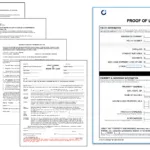Filing a homeowners or property insurance claim can be frustrating. Jumping into a claims process and dealing with insurance companies, adjusters, contractors, or attorneys immediately after your property is damaged can be a headache. Having your property damaged is already frustrating, and making an insurance claim and following it through to payment can be tedious. It’s not something you do every day, and it’s subject to nuanced and hard to understand state laws and regulations, as well as complicated policy terms. The good news, through, is that Colorado has strong policyholder protections built into the insurance law, and the insurance regulations provide strict deadlines and requirements for the investigation and payment of property insurance claims. If policyholders are aware of these deadlines and rules, and are proactive with respect to their claims, they should have a smooth, fast, efficient, and fair insurance claim process.
These resources are built to help policyholders — and all the stakeholders who work with them, like adjusters, attorneys, contractors, and consultants. These resources will help you file your claim correctly, document your losses thoroughly, and know when and how to followup through the claim process. And, if necessary, how and when to escalate and resolve the claim.
Claim Filing Deadline
Reasonable time
The timeline by which to make a property insurance claim in Colorado is set by the policy documents. However, it is always a good idea to make a claim as soon as reasonably possible given the circumstances.
Initial Response Time
Reasonably promptly
Colorado requires insurance companies to acknowledge property insurance claims and act upon them reasonably promptly
Claim Decision Time
Reasonable time
Colorado does not set out any strict deadline for the acceptance or denial of a property insurance claim, but instead requires that an insurer must affirm or deny coverage of claims by insureds within a reasonable time after proof of loss requirements under the policy have been completed and submitted by the claimant.
Lawsuit Deadline
3 years (2 years for bad faith)
Colorado requires that any action to recover payment under a homeowner’s insurance policy must be brought within 3 years of the loss, and specifically denies insurance companies the right to shorten that period. Further, bad faith claims are a tort and in Colorado must be brought within 2 years from the date that the insured knew or should have learned of the insurance company’s unreasonable denial or delay of the claim.
State Department
Colorado Department of Insurance
Colorado Division of Insurance
1560 Broadway, Suite 850
Denver, CO 80202
(800) 930-3745
Email: dora_insurance@state.co.us
Colorado Dept. of Regulatory Agencies – Division of Insurance website
File your Claim Now with ClaimSpot
ClaimSpot guides you through a quick, secure, and effortless filing experience.
It’s free. Let ClaimSpot Make Your Claim Fast & Easy.
Colorado Insurance Claim Guide
Filing: Colorado Insurance Claim FAQs
All insurance claims start by informing your insurance company of the loss. You want to do this as soon as possible. There are many ways to notify the insurance company. It’s most important that you keep a record of notifying them. Here are frequently asked questions about how to best “file your claim” with the insurance company in Colorado and the state regulations that will help (or hurt) you!
In order to initiate a claim under a property insurance policy in Colorado, the policyholder must inform their insurance carrier of the loss, some general facts surrounding the loss, and that they are making a claim. In many cases, an insurance company will call this communication a first notice of loss, or “FNOL”.
Most insurance companies provide multiple ways to contact them after a loss to begin the claims process, these usually include:
a. Phone call (a number is usually provided on the insurance company’s website);
b. Online portal – many insurance companies have an online form to notify the claims department of a loss, this may even be through a mobile app;
c. Your agent – many insurance companies even have a different section of their website or phone number for an agent to inform them of a policy-holder’s loss;
d. Online software as a virtual assistant.
While it is easy and quick to start a claim, claimants need to continue to follow-up and provide more information. In many cases, the insurer will require more information and supporting documentation, including specific forms, to actually process and adjust the claim. It is important to make sure that these forms are completed promptly, so the claim can keep moving forward.
1. Promptly inform your insurance carrier of the loss (see above);
2. As soon as possible begin to mitigate the damage – protect the property and secure it against further damage as soon as it is safe and possible to do so.
3. Cooperate with your insurance company and communicate with them (and keep copies of all correspondence).
4. Make your property available for inspection as soon as it is safe and possible to do so.
5. Prepare supporting documents for your claim including:
– Inventory list;
– Description of damages;
– Photographs and/or videos of the damage;
– Receipts; etc.
Reporting Deadline: Colorado insurance law does not set forth any universally applicable deadline by which a property insurance claim must be made. This means that the deadline for informing the insurer of a claim is set by the policy itself. It is important to be familiar with the insurance policy so that deadlines are not missed. Most insurance policies require that a claim be made “immediately” after the loss, or “promptly” or within a “reasonable time.”
It is always best practice to inform an insurance company of the losses sustained and that a claim is being made as soon as it is reasonably possible to do so after the damage is incurred and a determination that a claim will be filed is made. While it is never a good idea to delay in providing the insurance company with information once it has been determined that a claim will be filed, the actual meaning of “immediate” or “prompt” or “reasonable” with respect to making a claim depends on the circumstances – if a home is completely destroyed by a storm and the phones, internet, and power are off, it may take a little longer to make the claim.
Be sure to check the language of the insurance policy to determine the notification or reporting deadlines. But, in any event, remember that best practice is to provide notice of the loss and claim to the insurer as soon as possible.
Followup: Document Your Colorado Insurance Claim FAQs
Notifying the insurance company about a loss is just the first step. The most important work comes next: documenting your loss and following up with the carrier. Colorado has enacted many regulations to guarantee that the insurance company acts moves promptly and fairly to investigate and pay your claim…but you need to understand these regulations and know the appropriate timeframes. That means communicating with the insurance company early and often and putting them on the clock. These FAQs will let you know the applicable standards.
Documentation Deadline: Generally, Colorado does not set a specific deadline to provide support for a claim, including a proof of loss, by statute, but instead allows this timeline to be set by the policy itself. In many cases, Colorado insurance policies require that a proof of loss document be provided within 30 or 60 days of either the date of loss itself, or when the proof of loss was requested by the insurance company – it is important to read the policy thoroughly to determine when the proof of loss should be provided, these dates can vary significantly. Note, however, that in the event of a total loss of an owner-occupied primary residence that was furnished at the time of loss, the policyholder will have 365 days after a total loss to submit an inventory of lost or damaged property.
While the deadline for submitting a proof of loss may be extended by agreement between the parties if circumstances make it difficult or impossible for the policyholder to comply with the deadline as set forth by the policy, note, however, that no matter the actual deadline for providing supporting documentation, it is always best practice to provide a proof of loss document and support of the claim as soon as possible (while noting that the document only presents the knowledge at the time and may be amended or updated).
Additionally, note that Colorado insurance law states that it is an unfair claims settlement practice for an insurer to delay the investigation or payment of claims by requiring the claimant to submit a preliminary claim report, and then requiring the subsequent submission of formal proof of loss forms, when both would contain substantially the same information.
Some timelines for Colorado insurance companies’ final settlement of the claim start to run from their receipt of a sufficient proof of loss, so getting one to the insurance company quickly is a good way to get the claim process moving along, and to get your payment.
Colorado has adopted laws governing unfair claims settlement practices to protect policyholders and to provide a streamlined timeline for claims to be handled, and these laws provide deadlines for the acknowledgment and investigation of claims. However, despite these protections, Colorado does not set strict deadlines, and instead uses words like “promptly” and “reasonable.”
Deadlines for Acknowledgment: Colorado requires insurance companies to acknowledge property insurance claims and act upon them reasonably promptly after receipt of communications from a claimant regarding a claim under the policy.
Deadlines for Investigation: Colorado insurers are required to “adopt and implement reasonable standards for the prompt investigation” of a policyholder’s claim arising under their policies.
Colorado insurers are required to respond to any communication from the insured policyholder that reasonably indicates a response is expected in a reasonably prompt manner.
Resolving: Get Paid & Protect Your Rights On Colorado Insurance Claim FAQs
Ultimately, the insurance claim must be approved and paid (or, unfortunately, denied). Getting to this step and getting the money has a lot of logistics…and that is if everything goes well. If all or any portion of the claim is debated (which is really common) then you need to escalate it. In either event, Alabama has regulations governing these timelines to guide the way. These FAQs show what is supposed to happen.
Deadline for Acceptance/Denial: Colorado does not set out any strict deadline for the acceptance or denial of a property insurance claim, but instead requires that an insurer must affirm or deny coverage of claims by insureds within a reasonable time after proof of loss requirements under the policy have been completed and submitted by the claimant.
Deadline for Payment: Colorado requires that insurance companies must attempt in good faith to effectuate prompt, fair and equitable settlements of an insured’s claims in which liability has become reasonably clear.
Colorado insurance law sets forth many specific acts that, if undertaken by an insurance company, constitute unfair practices in settling claims. A policyholder whose claim for payment of benefits has been unreasonably delayed or denied may bring an action in a district court to recover reasonable attorney fees and court costs and two times the covered benefit.
A policyholder may file suit against the insurer for bad faith for an unreasonable denial of claim or payment of benefits. In order to be successful in such a bad faith suit, the policyholder must show:
(1) That the conduct of the insurer is unreasonable; and
(2) That the insurer knew that its conduct was unreasonable or acted in reckless disregard of whether it was unreasonable.
Deadlines to File Suit: Pursuant to the Homeowner’s Insurance Reform Act of 2013, Colorado requires that any action to recover payment under a homeowner’s insurance policy must be brought within 3 years of the loss, and specifically denies insurance companies the right to shorten that period.
For other property insurance, however, the deadline to file suit may be shortened by the policy language, so it is important to read the policy and note the deadlines stated therein.
Further, bad faith claims are a tort and in Colorado must be brought within 2 years from the date that the insured knew or should have learned of the insurance company’s unreasonable denial or delay of the claim.












